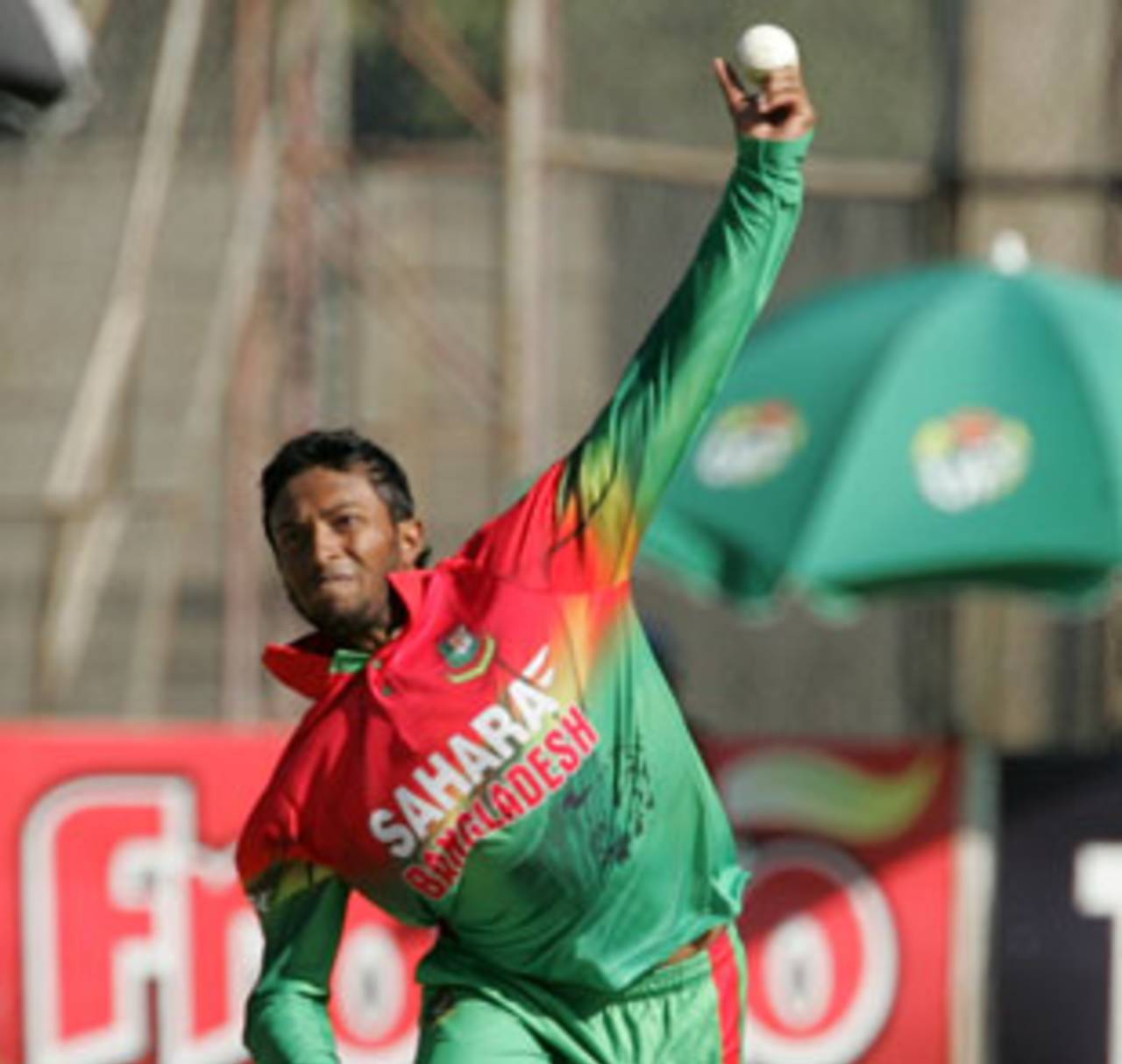A punishment that should have come earlier
Shakib Al Hasan has had discipline issues in the past, and had he been pulled up earlier this latest incident may not have occurred
Mohammad Isam
22-Feb-2014

Shakib Al Hasan has been invaluable as a cricketer to Bangladesh, and he has got away lightly in the past because of that • AFP
Less than 24 hours after his dressing-room misdemeanor, Shakib Al Hasan left the Shere Bangla National Stadium with a three-ODI ban and a heavy fine. The punishment may seem disproportionate to this particular crime, but it is a fair verdict for a man who has enjoyed lots of leeway as Bangladesh's No. 1 cricketer.
Shakib's inappropriate gesture during the second ODI against Sri Lanka was the big incident waiting to happen, after several smaller ones over nearly four years were overlooked by the Bangladesh Cricket Board.
Shakib's first public outburst was in October 2010 but the incident was buried under his match-winning performance on that day, and the bigger picture was missed. He was on 92 in the fourth ODI against New Zealand when there was movement near the sightscreen that the umpires could not stop. After a few minutes Shakib, Bangladesh captain at the time, ran towards the sightscreen, hurled abuse and threatened to hit the offender with his bat.
He was warned by the match referee but because he had led Bangladesh to their first major series victory over higher-ranked New Zealand, the BCB ignored the incident despite it happening in front of a large audience.
Shakib hit a low before and during the 2011 World Cup. In the lead up to the tournament there were several reports of him giving the BCB a hard time over small issues, while also having a bigger battle with them over permanent captaincy.
After Bangladesh's World Cup match against West Indies, several people in the Mirpur grandstand complained Shakib had reacted too strongly when he was booed. The offending picture was spread over the internet and published in several newspapers.
Within days of that incident, Shakib blasted former national cricketers in his Prothom Alo column, retaliating to their criticism of Bangladesh's implosion against West Indies. All the BCB did at the time was put a gag-order on the whole team for a few days, until Bangladesh beat England in Chittagong and everything was forgotten and forgiven.
A few months after the World Cup, in August 2011, Shakib was sacked as captain after Bangladesh lost a Test and an ODI series to Zimbabwe. The decision derailed the team, and the BCB was seen as being responsible, not Shakib. If this was Monopoly, Shakib seemed to hold all the get-out-of-jail-free cards.
In this latest incident, Shakib seemed to be getting angry because the camera had panned on him in the dressing room more than once. Shafiul Islam, the player sitting next to him, was laughing when Shakib suddenly gestured towards his crotch. The laughing continued, but by then the camera had refocused on the cricket. Shakib had played a poor shot to get out, and the immediate television attention was the trigger.
There has always been a tendency to portray Shakib as a dissenter against authority, particularly during his battle with the BCB regarding permanent captaincy. He wanted the board to stop naming a captain on a series-by-series basis, and he had his way.
While he was praised for his vision as Bangladesh captain and his record as an allrounder, there are not many in the BCB who have disciplined him when necessary. Nobody was willing to be held responsible for annoying the country's most valuable cricketer. It has been done this time, though, and quickly by BCB's standards
Shakib has been delivered a clear message, but he should have got it at least three years ago, through a different medium. On a crisp winter evening, Shakib walked into a room full of five-year-olds and they screamed his name in delight. He is a hero to people of all ages in Bangladesh, and that cheer should have been enough to make him understand his responsibilities.
Perhaps the healing process can start with him saying sorry to the kids.
Mohammad Isam is ESPNcricinfo's Bangladesh correspondent. He tweets here